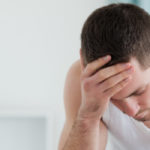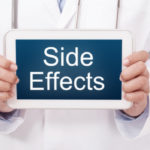In 2013, The Atlantic reported on a study conducted London Sleep Centre and University of Toronto which found new insight on how alcohol affects the ability to get a good night’s sleep. In short, the researchers found that the more alcohol consumed before bedtime correlates to a lower amount of REM sleep achieved early in the night. REM is the deep level of sleep we need to feel fully rested and give the brain the break it needs to process everything from our day. REM is also the level of sleep which allows us to dream. We simply don’t feel well rested when we don’t get deep REM sleep, which is why many sleep scientists advise against hitting the snooze button in the morning- constantly jolting the brain awake means every few minutes prevents the brain from settling back into an REM state of sleep. As a result, we end up more restless, irritable, and discontent- three feelings that men who have lived with active alcoholism are all too familiar with. Scientists have found that the very genes which help the brain and body regulate circadian rhythms are no longer functioning in people who have developed alcoholism.
The article uses the example of a woman named Jane who has a nightcap before bed. It soothes her mind and helps her slip into sleep, the article explains, “But it’s slightly less revitalizing than the sleep of sobriety.” Jane, the article describes, will be anxious the next day and on edge.
Does Sobriety Lead To The Best Sleep Ever?
It would be a mistake to assume that sobriety means you will sleep well, better than you ever did when you were drunk. In part, it is true. You are more likely to have a greater frequency of good nights’ sleep than you did when you were using. You will sleep longer, more soundly, and even have some crazy dreams, like using dreams. However, getting to the point of getting good sleep takes time. For the first three months of sobriety, there will be intense to moderate to lingering symptoms of withdrawal which can mean many a sleepless night. During the initial phase of detox, sleep will likely be scarce at night. By about six months, the circadian rhythm will reset and you will be getting a lot of sleep- full nights and full naps throughout the day. When PAWS, post acute withdrawal syndrome makes an appearance, you might struggle with sleep again. PAWS is a phenomenon of sobriety where symptoms of withdrawal show up later in recovery. Sleep disturbances can lead to crank moods, irritability, and discontent. Over a course of two weeks, a lack of sleep can be exhausting. Thankfully, PAWS passes quickly and ends after 18 months of sobriety.
Thankfully, there is a way to heal. If you have found yourself trapped by the cycle of addiction, there is hope. Tree House Recovery in Portland, Oregon, shows men how to find freedom from addiction. Creating sustainable recovery through sustainable change, our programs help men reclaim their lives mind, body, and spirit. Call us today for information: (503) 850-2474




